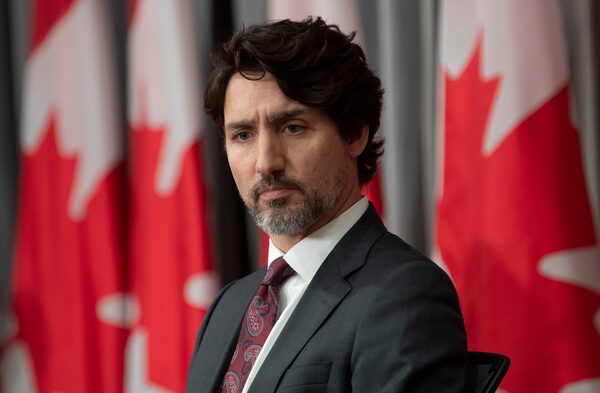
'As we’ve seen through this pandemic, both at the provincial level and the national level, we should have had more and we needed to have more,' said Prime Minister Justin Trudeau, seen here on May 1, 2020.Adrian Wyld/The Canadian Press
Prime Minister Justin Trudeau acknowledged Friday that federal and provincial emergency stockpiles should have been better prepared for the COVID-19 pandemic, as the opposition charged the mismanaged and inadequate supplies reflect a “breach of duty.”
Mr. Trudeau pledged that his government would ensure the stockpile of personal protective equipment and other medical supplies would be ready for the next pandemic, but he said it’s too early to specify what level of supplies need to be maintained.
“As we’ve seen through this pandemic, both at the provincial level and the national level, we should have had more and we needed to have more,” Mr. Trudeau said.
His comments were in response to a report this week in The Globe and Mail that a month before the novel coronavirus prompted a Canada-wide shutdown, the federal stockpile didn’t have enough supplies of personal protective equipment to meet the needs of just one province for a week during the pandemic.
The national emergency strategic stockpile is meant to backstop provincial stockpiles of vital supplies needed in a pandemic or other emergencies. Federal officials have said the federal program was not mandated or funded to amass significant levels of personal protective equipment.
What is my province or territory’s coronavirus lockdown like, and when will it be lifted? A guide
Coronavirus guide: Updates and essential resources about the COVID-19 pandemic
One of the country’s top health officials argued that the size of the pandemic was unprecedented and the stress it would put on international supply chains couldn’t be anticipated. But opposition MPs pointed to previous reports that predicted the supply shortfalls and called for better life-cycle management of supplies in the stockpile, as evidence the government had fair warning to better prepare.
The inadequate funding and mismanagement of the stockpile spanned both Conservative and Liberal governments, NDP MP and health critic Don Davies said, adding neither has an excuse for the shortcomings.
“It’s a serious breach of duty that puts Canadian’s lives unnecessarily at risk," Mr. Davies said.
In 2006, top health authorities flagged the likelihood of medical supply shortfalls in a federal playbook that imagined the country’s response to a hypothetical influenza pandemic. The Canadian Pandemic Influenza Plan, warned: “All levels of government and health service institutions need to plan and put into place strategies to meet the greatly increased demand for medical supplies.”
Also in 2006, Ontario’s SARS commission report said "the importance of having emergency supplies and a secure supply chain is an important lesson as we prepare for the possibility of future public health emergencies, like pandemic influenza.”
Deputy Chief Public Health Officer Howard Njoo said Friday the current pandemic is unprecedented in Canada.
"No one could have predicted how this was going to unfold,” he said. “I don’t think anyone could have anticipated that those supply chains and the way we might have been able to obtain supplies before would no longer be in play at the present time.”
Medical staff in hospitals, long-term care homes and in the community have reported rationing of personal protective equipment during the pandemic. Over all, though, Mr. Trudeau said “we have largely been successful in meeting the need.”
“But it took an awful lot of scrambling, an awful lot of effort that ideally wouldn’t have had to happen."
Officials at the Public Health Agency of Canada told The Globe that there were no regular updates between the provinces, territories and the federal government about what the local stockpile levels were. Conservative MP and health critic Matt Jeneroux wondered how the agency could effectively manage the stockpile without knowing the level of equipment in provincial stockpiles.
Without that, “how do you prepare for a pandemic in the first place,” he said.
To avoid being ill-prepared for another pandemic, Mr. Davies said federal, provincial and territorial governments need to come to an agreement on who is responsible for stockpiling what materials and at what levels.
Mr. Trudeau said how that work will be done will be decided at a later date.
“There will of course need to be very careful reflections on how we make sure that if this ever happens again, we are much better prepared. That is something that we are all going to be committed to," he said. "It’s something that Canadians expect, it’s something that this government will do.”
With a report from Grant Robertson in Toronto.
Now that it is recommended you wear a face covering in dense public settings like grocery stores and pharmacies, watch how to make the three masks recommended by the Centers for Disease Control and Prevention. Written instructions available at tgam.ca/masks
The Globe and Mail
Sign up for the Coronavirus Update newsletter to read the day’s essential coronavirus news, features and explainers written by Globe reporters.
 Marieke Walsh
Marieke Walsh